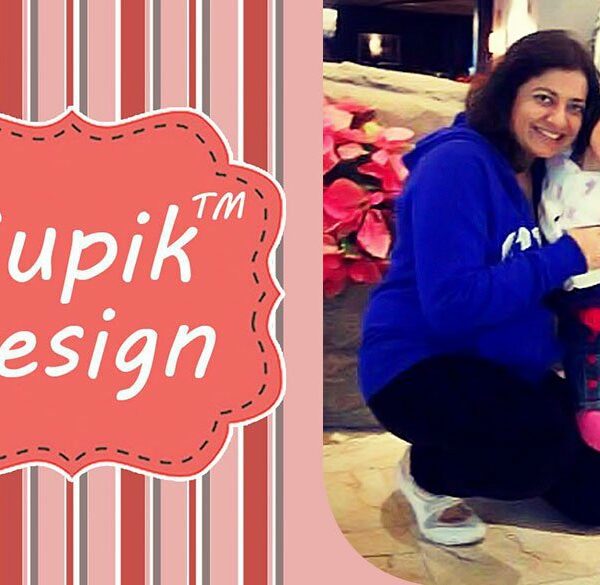After an Sabarimala temple in Kerala’s Chief Prayar Gopalakrishnan recently said he would allow women to enter the shrine only after a machine was invented to detect if they were “pure” – meaning that they weren’t menstruating!
Outraged women have launched a #HappyToBleed campaign on Facebook to protest against the “sexist statement”.
The movement was started by 20-year-old Indian activist Nikita Azad.
She reveals the thinking behind the hashtag #HappyToBleed as a sarcastic and audacious answer to Indian patriarchy.
Happy, as a word, is used as a satire, a comment, on patriarchal forces which attach the understanding of purity-impurity of women with menstruation. The movement is a form of resistance against patriarchal beliefs about menstruation and chauvinist notions that consider women the property of men, or society.
The event encourages women to post photos of themselves holding up pieces of paper or sanitary pads with the words ‘Happy to Bleed’ on Facebook.
Japleen Pasricha, Founder & Editor-in-Chief of Feminism in India openly stated “This isn’t about if I want to go to a temple or mosque or church or if I’m religious or not, this is about my right to walk into any building, institution, temple regardless my vagina is bleeding or not. My vagina bleeds which is ironically why you accept me as a ‘woman’; else I’d have been dismissed as barren. So shut the fuck up about impurity, this blood is the reason why you exist.”
It’s interesting that so much embarrassment, awkwardness, and shame surround a natural bodily function experienced by half the population at some point in their lives. We don’t hide toilet paper away, yet some women still get flustered if a tampon drops out of their handbag, or we might buy a floral-patterned tin to hide our sanitary pads.
Different history, different menstruation?
Historically, periods have been revered and reviled in turns. But mostly just reviled. We were off to a good start with the ancient Greeks, who may have used menstrual blood in medicine and also as a fertiliser (it’s rich in nitrogen). Hippocrates believed that menstruation cured women of pre-menstrual tension and was very pro-bloodletting in general. So far, so inoffensive.
Unlike what is now thought by most people, menstruation was originally considered a highly sacred process, equipping women with strong powers which could be life-giving (hence worshipping women) or dangerous (hence secluding menstruating women). Herein lies the beauty and the contradiction.
The Woman in the body
Menstruation not only carries with it the connotation of a productive system that has failed to produce, it also carries the idea of production gone awry and that periods are evidence the body is “making products of no use, not to specification, unsalable, wasted, scrap.”
The female body is not to be problematised as a site of pathology and victimized for its potential fertility.
Menstruation is a normal, natural female physiological function.
How do women deal with periods?
A shocking 70% of women in India still use old rags to soak the flow. The very first period is celebrated. The consequent ones become matter of disgust. It is not just the women but even men find buying sanitary napkins for their women embarrassing! Ignorance and poverty are also the reason why most women resort to using sand, sawdust, leaves, and even ash to stem their periods. Apparently in some parts of the county, menstruating women are cursed. Some are also not allowed to water plants or sleep in the same bed as their husbands. Isolation is all she experiences. Even the utensils she is served the food in, are specially kept away for her to use during her period. She cannot wash her hair for at least the first 2 days of her period!
Menstruating woman runs marathon
In a daring move, one woman ran an entire 42.195 km London marathon during her period without a sanitary napkin or tampon, to break the stigma around menstruation. Drummer and feminist Kiran Gandhi, participated in the marathon to raise money for Breast Cancer Care. Cheering her on all the check point were her very supportive father and brother, who wore cheer tee-shirts. Gandhi, a Harvard graduate documented the experience on her blog. “I ran the whole marathon with my period blood running down my legs,” she wrote, making a statement that the taboos around women’s period were irrelevant. Even though Gandhi’s move was unconventional, she did manage to start a conversation about the taboos when it comes to menstruation.
Tense and worried
In India, there is generally a silence around the issue of women’s health – especially around menstruation. A deep-rooted taboo feeds into the risible myth-making around menstruation: women are impure, filthy, sick and even cursed during their period. Menstruation constitutes the great, shared silence at the heart of female existence. Women are likely to bleed for between 2,250 to 3,000-plus days across their lifetimes. Our menstrual cycles are how many of us measure short-term time, not least those on the contraceptive pill, or striving for a baby. They are no less how we chart large-scale life changes: infancy, pre-pubescence, menarche, one’s fertile years, pre-menopause, menopause and post-menopause.
This invisibility of the menstruating woman – even when she is racing right before our eyes – remains universal, despite the fact that girls are hitting puberty ever earlier.
Menstruation is taught in schools because it’s ‘natural’, but treated as though it’s nasty. Menstruation is normal, but the attendant hormonal flux is a disease. Menstruation is obsessively hidden, yet its real disappearance – menopause – engenders disdain. Menstruation doesn’t really have anything to do with sexuality, yet it shares all its taboos.
Our menstrual etiquette persists because it shores up a slew of problematic beliefs about women and reproduction, sex, sexuality and power. Menstruation belongs in the swelling heap of feminist thought, the pile labelled ‘Women’s Bodies are a Battleground’.
Shattering Myths
Menstrupedia, a website run by four Indians, aims at “shattering myths and understandings surrounding menstruation” and features comic books and succinct guides on puberty, menstruation and hygiene management. It receives more than 100,000 visitors a month.
A school dropout from the southern Indian state of Tamil Nadu was among the first to start making cheap sanitary pads using simple machines. Arunachalam Muruganantham , (referred to as menstrual man), created a machine that could help any woman create world class napkins without having to spend heavily.
Trying to ending the silence around the issue, Goonj is one of several groups that are running campaigns to educate people about menstruation and the myths around it. It works in 21 out of 30 states in India.
So just understand one thing: it may be painful, but it’s perfectly normal to bleed and it does not make you impure.












